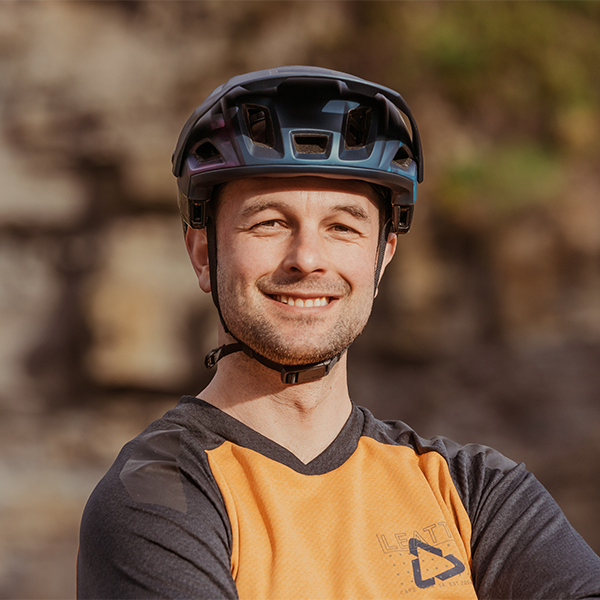There’s a staggering array of great mountain bikes available for less than £2,000. BikeRadar has done the heavy lifting for you and put together a list of the very best mountain bikes under £2,000 (around $2,500) in 2025.
Between £1,000 and £2,000 is the point that full-suspension mountain bikes begin to make more sense, with decent builds that make few compromises.
If you’re looking to buy a hardtail in this price range, you’ll also have a hard time buying a bad one. This price bracket is a popular one for enthusiast cyclists, which has made for an incredibly competitive market, forcing brands to spec bikes with increasingly high-quality builds, including more expensive mountain bike groupsets.
The best mountain bikes under £2,000 / $2,500, as rated by our expert testers
Boardman MTR 8.9
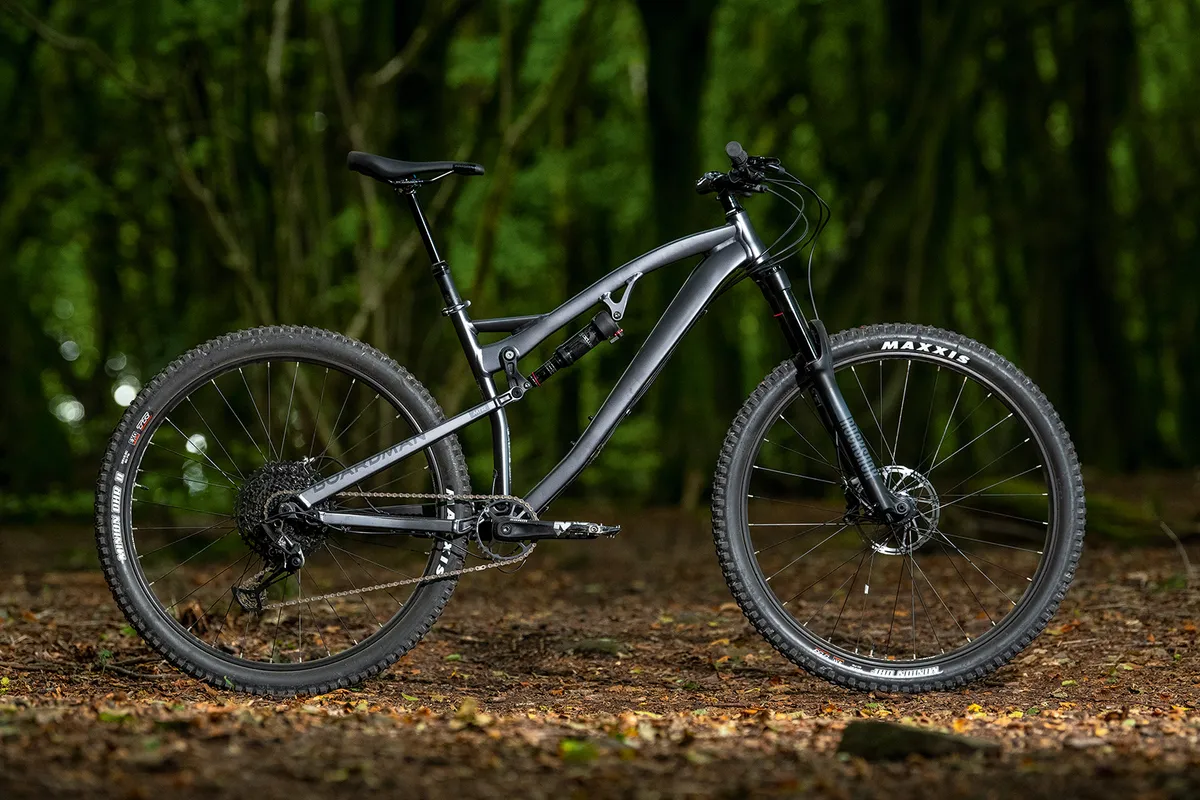
- £1,750 as tested
- Pros: Rapid acceleration; supportive suspension
- Cons: Extreme riding exposes the bike’s limits
The Boardman MTR 8.9 is the less expensive version of the MTR 9.0. It has the same alloy frame, geometry and suspension as its pricier sibling but with a more affordable SRAM NX Eagle drivetrain.
The bike is comfortable and has a relaxed riding position. However, the seat-tube angle does feel too relaxed when climbing steep gradients.
The rear suspension doesn’t bob too much under pedalling, rewarding your input with quick acceleration. It still has enough give, absorbing small bumps. The RockShox 35 Gold RL front fork also does a good job at absorbing bumps, even on steep climbs.
Despite only having an 11-50t cassette and 32t front chainring, the bike doesn’t feel lacking in gears, thanks to its low weight and snappy suspension.
The inclusion of a dropper post enhances the bike’s ride and improves flow on trail centre loops, for which it is well-suited.
On descents, the SRAM Guide T brakes can feel wooden and the bike is a little noisy. But despite these issues, the MTR 8.9 is a fun bike to ride. It's ripe for upgrades and we’d choose to turn it into a light and fast mile-munching machine.
Canyon Neuron 5
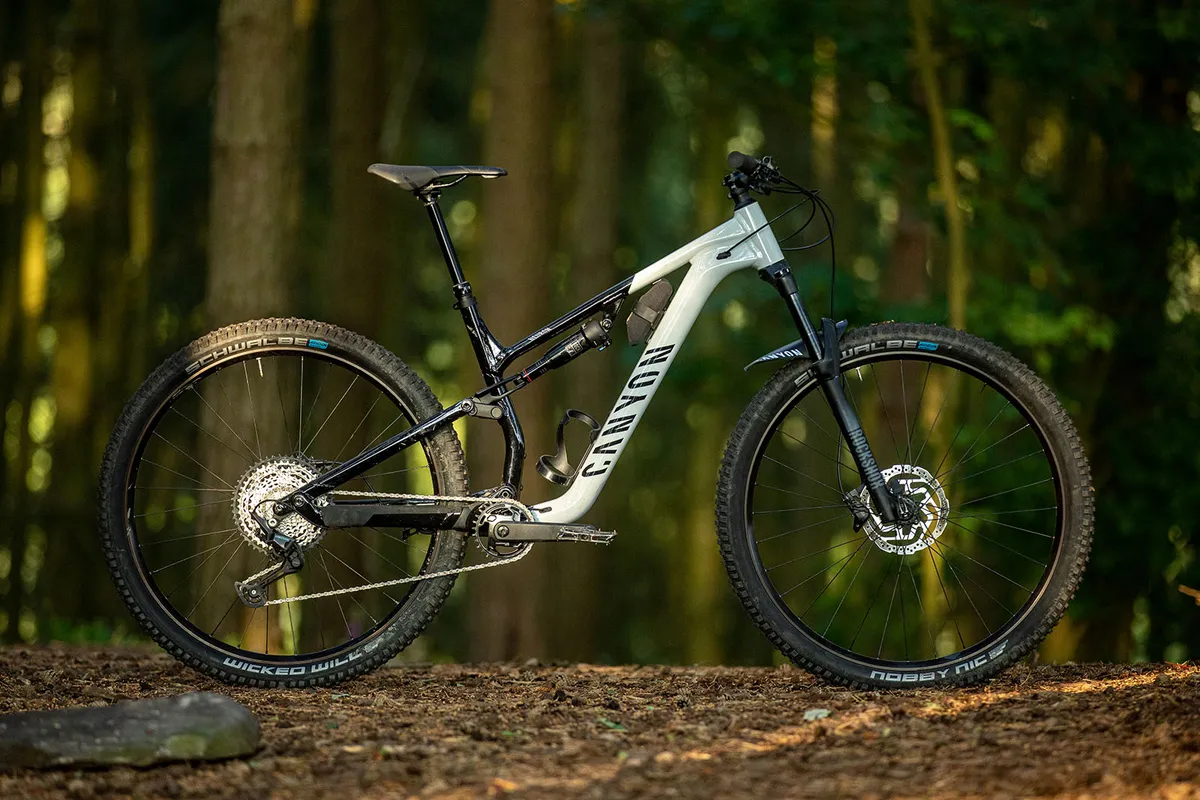
- £1,849 / $2,099 / €1,899 / AU$2,949 as tested
- Pros: Carries speed well on flatter trails; good composure; enough grip in most conditions
- Cons: Lacks support on steeper terrain
Canyon's Neuron 5 is fast-rolling on mellow trails, while remaining comfortable on rougher terrain thanks to supple suspension characteristics. However, this made the bike feel a little too active on steeper and more technical descents.
The Neuron feels nimble and is eager to blast trail centre singletrack with the Schwalbe Nobby Nic and Wicked Will tyre combo providing grip in all but the dankest of conditions.
We felt the RockShox Recon fork was slightly out of step with the rear suspension, which added to the lack of support on steeper descents.
Kona Kahuna
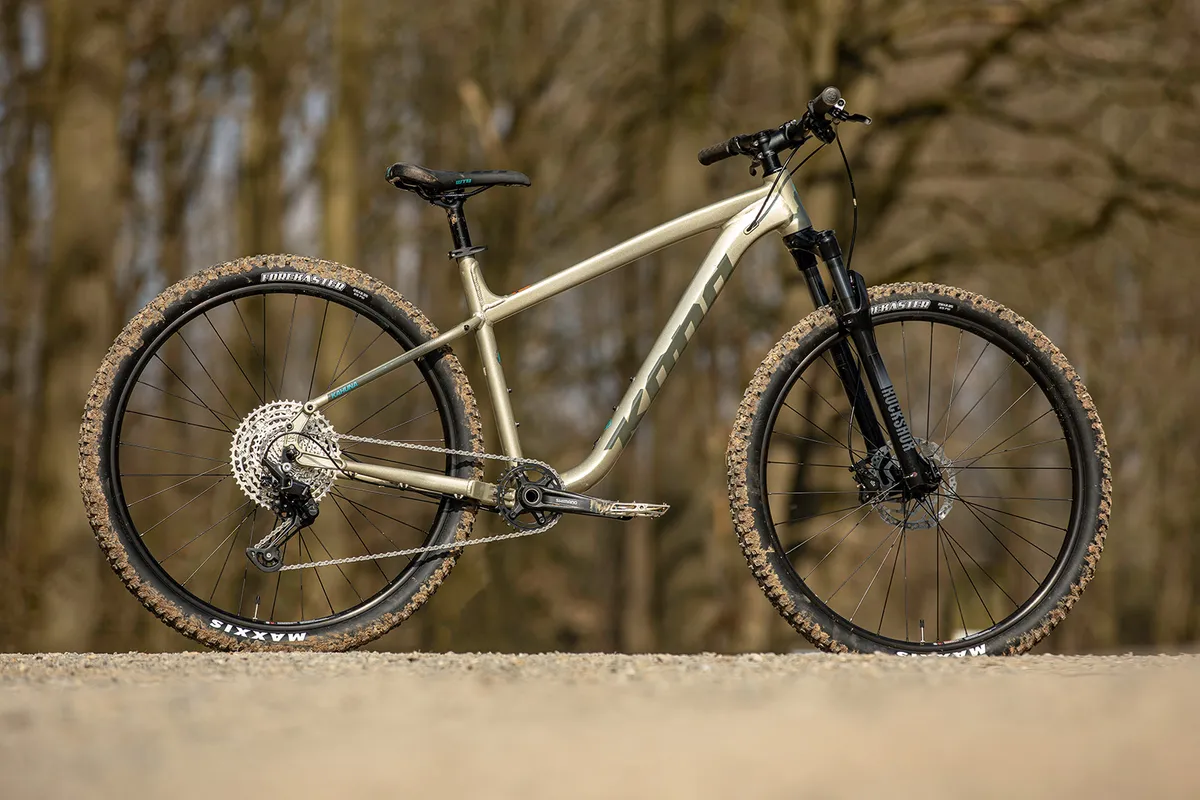
- £1,199 / $1,499 as tested
- Pros: Balanced, intuitive ride; excellent drivetrain and brakes
- Cons: Traditional geometry limits downhill capability
The Kona Kahuna hardtail mountain bike has been around for decades, with the brand continually refining the bike.
The latest version sees Kona move toward cross-country and trail bike efficiency with superb ride quality. The shape of the bike means you can still take on rough terrain with the aluminium frame smoothing out bumps.
But be warned – experienced riders may find the Kahuna’s limits fairly quickly and it’s not particularly suited to aggressive downhill riding.
The spec is admirable considering the price. The 12-speed Shimano Deore drivetrain performs almost as well as the brand’s XT groupset found on bikes costing up to £10,000. The Shimano MT410 brakes have loads of power and the long levers give plenty of hand positions.
The 100mm RockShox Recon Silver RL front fork does, though, move through its travel quickly, and it would be nice to see a dropper post fitted to the bike.
Whyte 529

- £1,250 as tested
- Pros: Really fun to ride; well-specced; decent brakes
- Cons: Quite long
The 529 has a playful character that can impress on descents thanks to sensible geometry and component choices.
We found the bike capable on a variety of trails and terrain, with high-rated trail-centre tracks well within its remit.
Its low bottom bracket height makes the bike nimble in the corners, while the slack head angle and long reach put you in a good position on steep trails.
This makes for a stretched-out climbing position when going uphill.
Boardman MTR 8.6
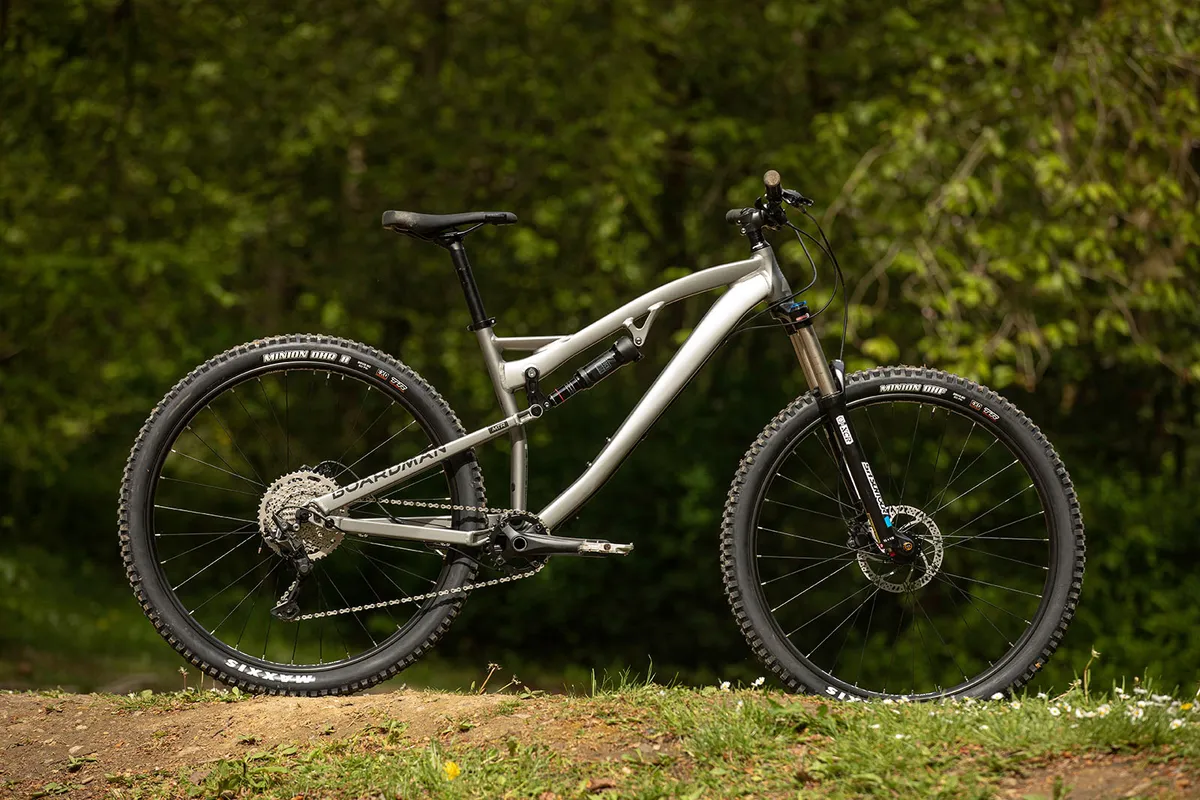
- £1,150 as tested
- Pros: Good geometry; grip from suspension and tyres helps you ride fast
- Cons: Shock could do with a tune
At £1,150, the full-suspension Boardman MTR 8.6 is great value for money. In fact, it's possibly the best-value full-suspension bike currently available.
The bike has 140mm of travel in the fork and 145 of rear travel controlled by an air-sprung RockShox damper. Elsewhere it has Maxxis Minion tyres and an up-to-date 1x drivetrain.
The MTR is a weighty bike which means it can take some time to reach speed on the flat. Despite its weight, the bike does well on all but the steepest climbs. Point the bike downhill and it feels calm. You may wish the Suntour brakes had a little more power, though.
Boardman MTR 9.0
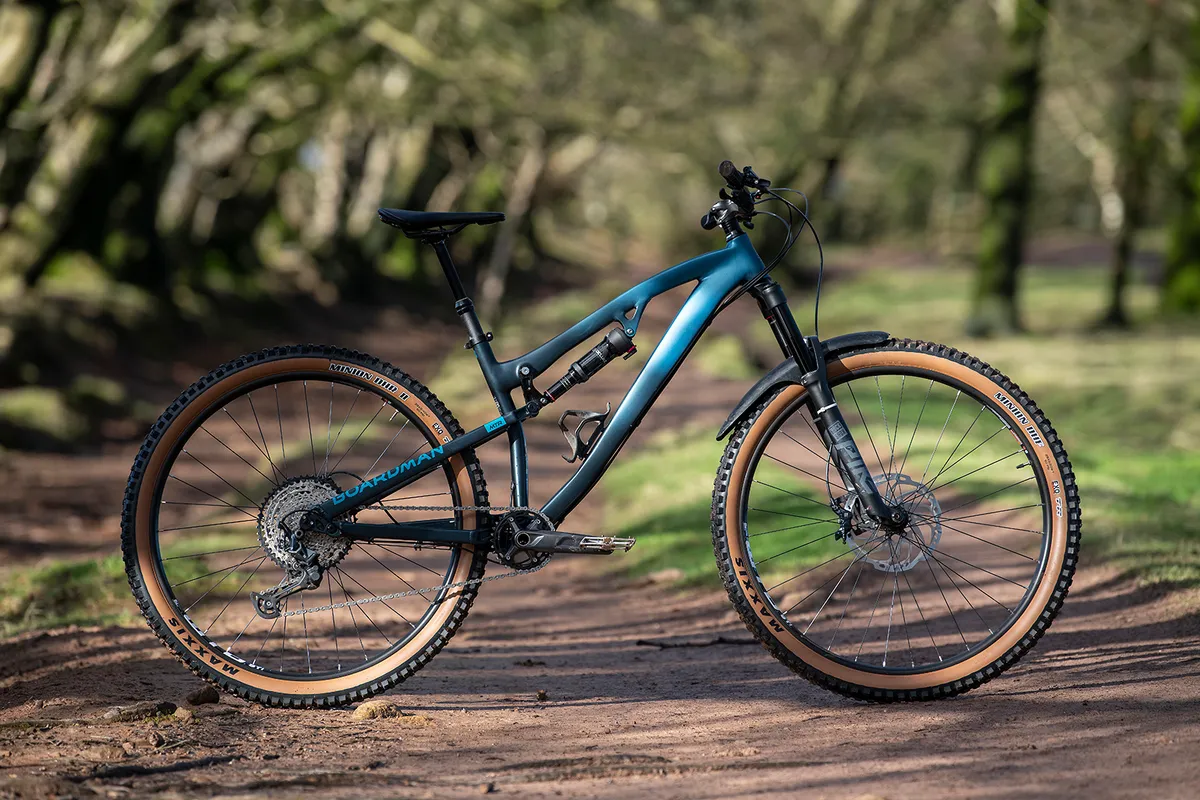
- £2,000 as tested
- Pros: Well specced with RockShox fork and rear shock; confidence-inspiring ride
- Cons: Saddle and grips aren't the comfiest
The MTR 9.0 is the flagship bike in Boardman's MTR series, with a 6066 alloy frame that has smoothed welds, RockShox suspension front and back and a groupset that is mostly Shimano SLX.
The full-suspension bike has four-pot brakes that help its overall feeling of stability on descents, and the tyres provide plenty of grip.
Despite its emphasis on descending it climbs reasonably well, aided by the 10-51t cassette and steep seat-tube angle.
The bike has a dropper seat post, which is welcome on a bike like this, but one small annoyance is that the lever isn't particularly good.
Overall, the bike rides with more confidence than you would expect from the price. There are small niggles – like that dropper lever – but none that would cost much to change.
Giant Fathom 29 2
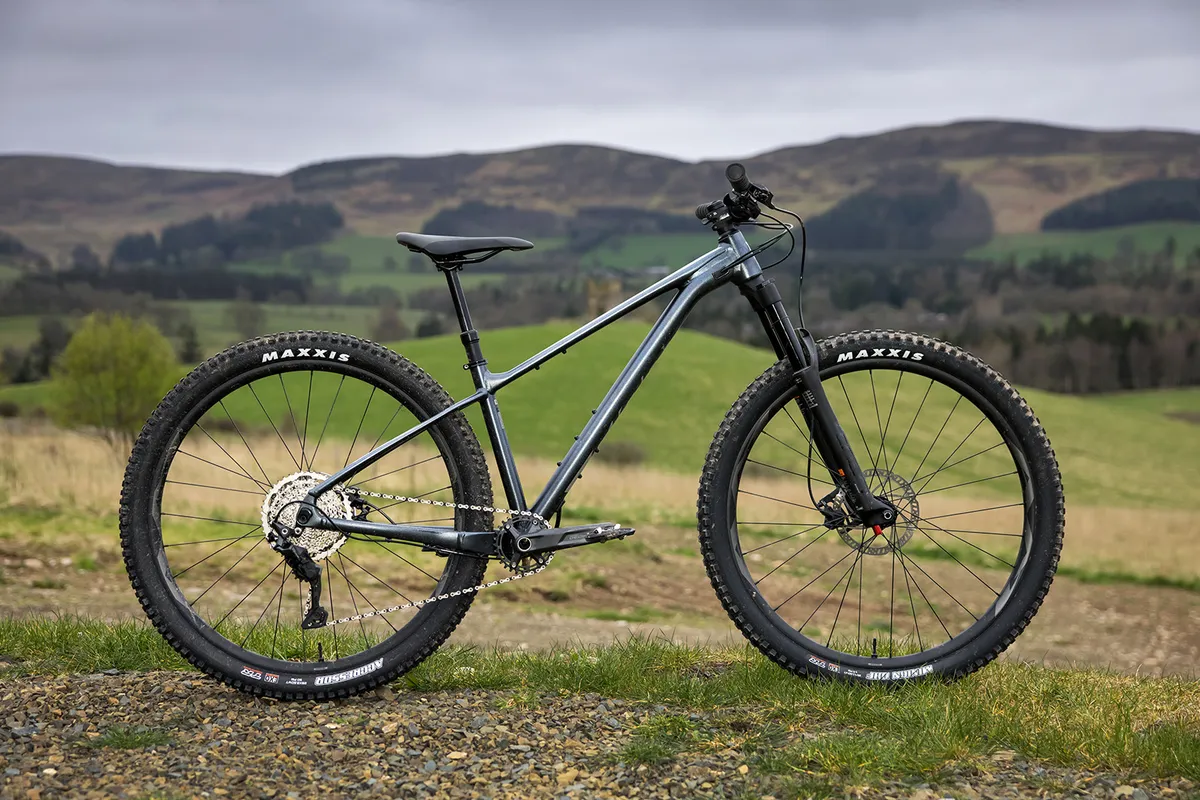
- £1,399 / $1,500 / €1,299 as tested
- Pros: Decent value for money; modern geometry; dropper seatpost
- Cons: Some riders may need to size down
Giant's Fathom 29 2 impressed us with its considered component choice, with Giant's suspension fork proving plush and stable on the descents.
We found the bike very capable, tackling trail-centre black routes with a playful character and plenty of grip thanks to the Maxxis tyres.
Our tester found the bike to be quite a lot bigger than expected, so small riders should consider sizing down.
GT Zaskar LT Elite
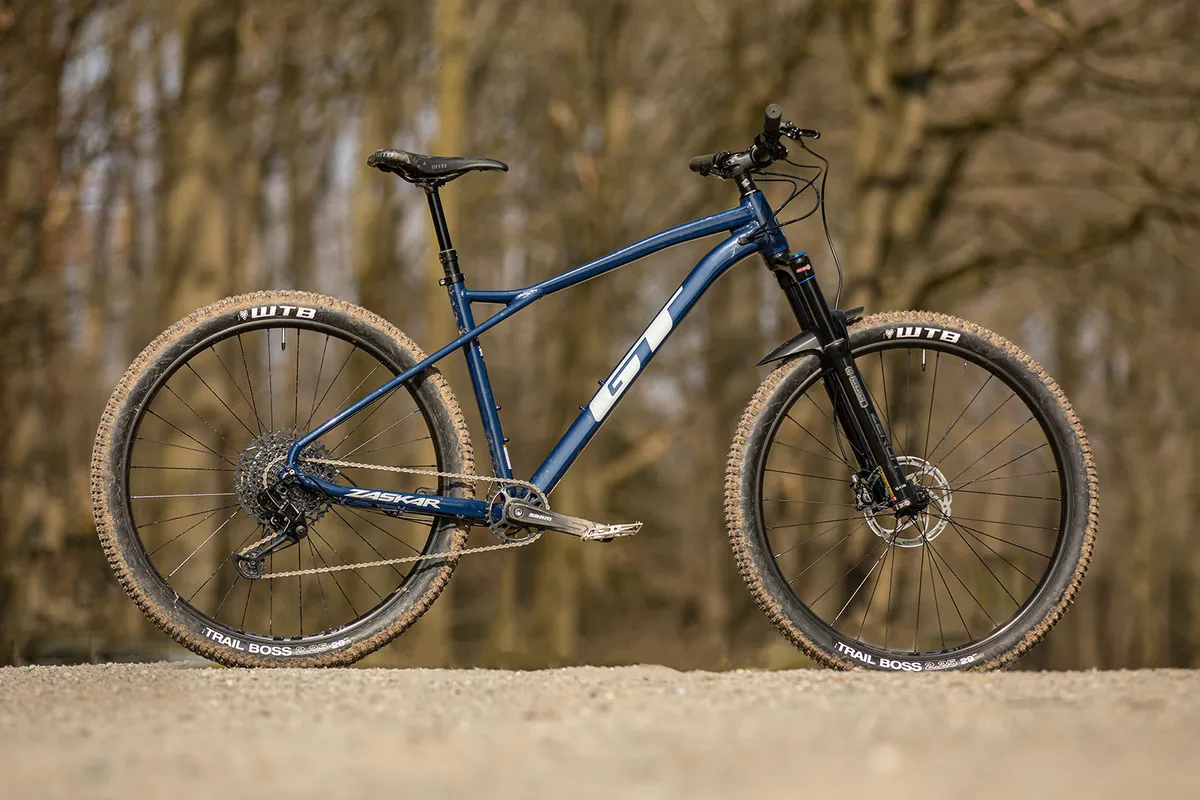
- £1,350 / $1,700 as tested
- Pros: Suntour Zeron fork works well; good grip in most conditions
- Cons: Noisy on rough descents
The GT Zaskar was the go-to hardtail for aggressive riding in the 1990s and this new version has the same silhouette as its '90s counterpart.
However, the new Zaskar comes with bigger wheels than its predecessor, a stretched-out frame and a relaxed head angle, creating a bang-up-to-date ride feel and smooth handling.
As a result, the Zaskar is extremely fun to ride and it ticks off hard trails and steep sections with confidence.
The WTB Trail Boss tyres and SR Suntour fork help with its downhill performance and the inclusion of a dropper post enables you to take on tricky trails.
The Zaskar would have scored higher if it wasn’t for a couple of minor gripes. The frame is noisy due to chain slap and the internal cable routing. It is also 2kg heavier than some competitors.
Orbea Onna 10
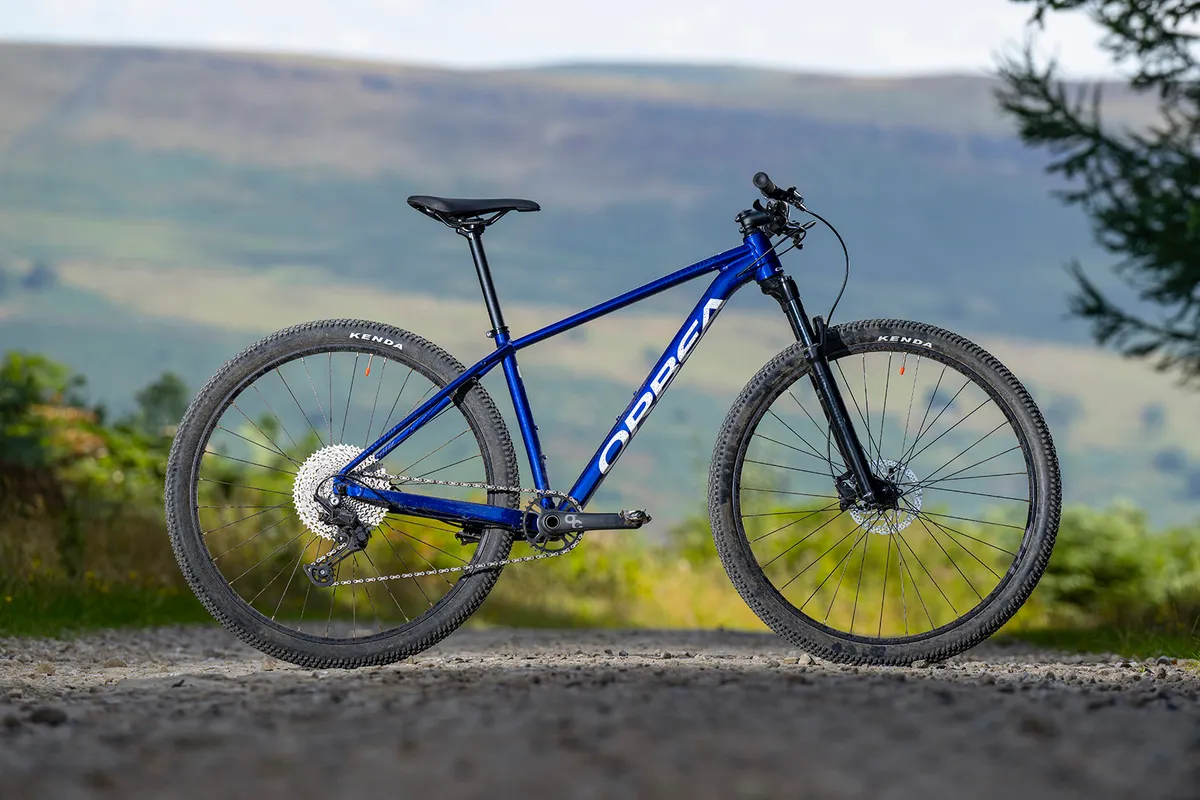
- £1,099 / €1,099 as tested
- Pros: Great geometry with a cross-country focus; impressive spec for the price; versatile
- Cons: Quick-release fork
The Orbea Onna 10 has a silhouette similar to the best cross-country bikes but costs far less. Intended for urban and light trail use, the Onna 10 is a versatile machine that feels more responsive than other bikes at this price point.
The bike's steep seat tube angle makes it great for climbing and while it's not designed for gnarly descents, the bike composes itself well when pointed down a trail. It's worth noting, however, that the RockShox Judy fork does limit the bike's descending performance.
You can add a rack to the Onna 10 making it a good commuter bike.
Sonder Signal ST NX
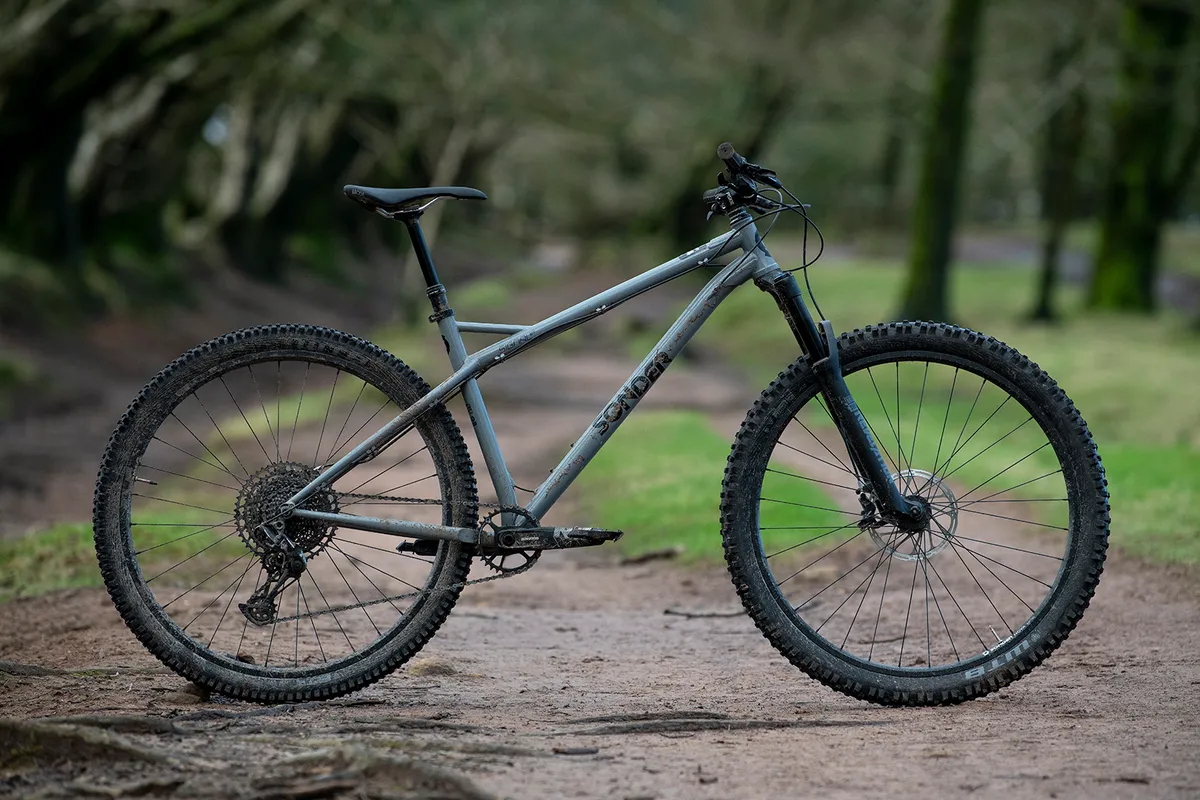
- £1,599 / $2,297 / €1,799 / AU$2,914 as tested
- Pros: Great geometry; well-specced for the money
- Cons: Short-travel dropper; Small brake rotors hold it back
The Sonder Signal ST NX sticks to the British brand's goal of delivering good value for money, high-performing steel bikes.
The steel frame gives the bike a weighty feel but once you're riding, the Signal has a comfy climbing position, spinning up fire trails and over steep, technical sections. It's not the fastest up climbs, but a bike like this is never really intended to be.
Once you point the bike downhill, the geometry and tyres come together to form a highly competent trail machine that gets over rough terrain with ease and urges you to go faster.
Sonder has clearly prioritised certain aspects of the bike to give the optimal ride for the money, with a SRAM NX Eagle drivetrain and a RockShox fork.
It would be good though if it had been specced with larger rotors to really unlock the bike's descending prowess.
Also consider…
The following bikes scored fewer than four out of five stars but are also solid performers and worthy of consideration.
Cannondale Habit HT 1

- £1,500 / $1,550 / €1,699 as tested
- Pros: Efficient climbing position; well-considered spec; 12-speed drivetrain
- Cons: Quite pricey; slightly cramped on descents; harsh-feeling
The Habit HT 1 performs well on the hills, with the geometry offering a comfortable and efficient position.
Its short reach figure can be felt when standing out of the saddle, with this being especially noticeable descending where the front of the bike feels slightly cramped.
We found the bike to perform well on smooth trails, with the tyres overwhelmed in gnarlier terrain.
Merida Big Trail 400

- £1,200 as tested
- Pros: Good value for money; impressive fork; impressive fork
- Cons: Quite heavy; chainstays suffer from heel rub; harsh on rough trails
The Big Trail 400 offers impressive value for money, with the bike more than capable of trail-centre black trails.
Its Suntour XCR 140mm air fork and dropper seatpost make it controlled and composed on descents and are good to see on a bike at this price.
We found the bike to be quite hefty, which resulted in sluggish climbing performance. Despite this, the bike remains comfy for long days in the saddle.
Polygon Siskiu D6

- £1,250 / $1,149 as tested
- Pros: Decent brakes and drivetrain; modern design; dropper post included
- Cons: Shallow seatpost insertion; shock position limits bottle size; no lock-out on the shock
The Siskiu D6 is extremely capable for the price tag, with our tester finding it at home on black trail-centre descents.
We also found the spec impressive, with the dropper post leading to zero interruptions in our riding to lower the post.
The insertion of the post in the frame was quite shallow, meaning shorter riders may struggle to slam the dropper post.
We'd have liked to see a rear lockout on the shock to make pedalling more efficient on the climbs as well as more aggressive tyres.
Other budgets
If you’re looking for something a bit cheaper, be sure to check out our guides to the best mountain bikes under £1,000, £750 and £500.
If you’re feeling a little more flush, our guides to the best mountain bikes under £3,000 and the best trail bikes should do the trick.
Lastly, for a more overall guide, check out our guide on how to choose the right mountain bike for you.

